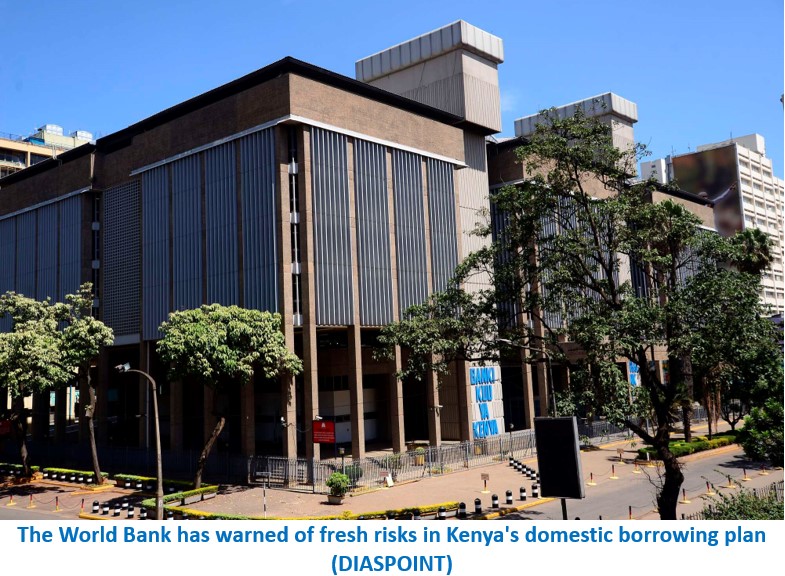World Bank warns Kenya of fresh risks in State’s borrowing plan
Post By Diaspoint | September 23, 2023

In a new report, the Bretton Woods institution appears to suggest it is important for the government to cut reliance on domestic debt, which has the inherent risks of crowding out the private sector.
This happens by limiting credit and fuelling higher interest rates, making it more expensive for companies and individuals to borrow.
Consequently, the World Bank has signalled it is imperative for countries like Kenya with huge debt profiles such as the maturing Sh292 billion Eurobond to cast their nets wider for alternative and additional sources of international financing.
Treasury Cabinet Secretary Njuguna Ndung’u said recently this is compounded by lower-than-expected revenues, which could impact the government’s ability to deliver on its ambitious campaign pledges.
“The economy faces two extreme constraints: financing constraints as tax revenues generated cannot finance the development we wish to have, and on the other extreme we have limited headroom for debt,” he said.
“We are choked with inherited debt that must be paid.” Experts have pointed out that Kenya faces a risk of commercial banks cutting lending to the economy because they are increasingly buying into government bonds.
Rising borrowing costs and tougher market conditions could mean that the government will struggle to refinance upcoming maturing debt, the World Bank has warned in the past.
This is against a backdrop of Kenya’s weaker credit rating by global rating agencies, signalling taxpayers will have to fork out more to service the planned borrowing amid tighter global market conditions.
Global ratings agency Fitch recently also downgraded the country’s credit rating outlook, dimming chances of tapping cheap credit on the international market.
A credit rating or outlook cut is significant because it may influence a country’s cost of borrowing in the international financial markets.
This means President William Ruto’s regime may have to hike taxes, cut spending or seek costly external commercial loans amid the ongoing economic crisis.
Read More from original source
